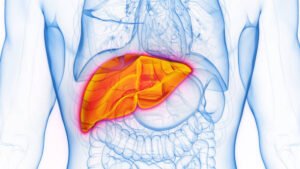
For years, fatty liver disease was primarily associated with excessive alcohol consumption. However, a growing number of people are developing Non-Alcoholic Fatty Liver Disease (NAFLD), a condition where fat accumulates in the liver, even without a history of heavy drinking. What’s driving this alarming trend? The answer may lie in your diet and even your medicine cabinet.
Also See : Exclusive: Psychiatrists Push for Separate Passing Standards for Disabled Students in Tamil Nadu!
The Carbohydrate Connection: A Sweet Threat to Your Liver
While alcohol is a known liver toxin, excessive consumption of certain carbohydrates, particularly refined sugars and fructose, can also wreak havoc on this vital organ. Here’s how:
- Insulin Resistance: High carbohydrate diets, especially those rich in processed foods and sugary drinks, can lead to insulin resistance. This means your body needs to produce more insulin to regulate blood sugar levels.
- Fat Storage: When insulin levels are consistently high, your liver starts converting excess glucose into fat. This fat can accumulate in the liver cells, leading to NAFLD.
- Fructose Overload: Fructose, a type of sugar commonly found in sugary drinks and processed foods, is metabolised primarily in the liver. Excessive fructose intake can overwhelm the liver’s processing capacity, leading to fat accumulation.
- Inflammation: The excess fat in the liver can trigger inflammation, which over time, can lead to more serious complications like NASH (Non-Alcoholic Steatohepatitis), cirrhosis, and even liver cancer.

The Paracetamol Paradox: A Common Painkiller, A Potential Liver Risk
Paracetamol, also known as acetaminophen (e.g., Tylenol), is a widely used over-the-counter pain reliever and fever reducer. While generally safe when taken as directed, exceeding the recommended dosage or combining it with other medications or alcohol can be extremely dangerous to the liver.
- Liver Metabolism: The liver metabolises paracetamol. When taken in excessive amounts, it can produce a toxic byproduct that damages liver cells.
- Overdose Dangers: Accidental paracetamol overdose is a common cause of liver failure. It’s crucial to carefully read and follow dosage instructions and avoid taking multiple medications containing paracetamol simultaneously.
- Pre-existing Conditions: Individuals with pre-existing liver conditions, even mild NAFLD, may be more susceptible to paracetamol-induced liver damage.

The Food Factor: Making Smart Choices for Liver Health
Protecting your liver involves making conscious dietary choices and using medications responsibly. Here are some practical tips:
- Limit Refined Carbohydrates: Reduce your intake of sugary drinks, processed foods, white bread, pastries, and other refined carbohydrates.
- Embrace Whole Foods: Focus on a diet rich in whole, unprocessed foods like fruits, vegetables, lean protein, and whole grains.
- Healthy Fats: Incorporate sources of healthy fats like avocados, nuts, seeds, and olive oil into your diet.
- Read Labels Carefully: Pay attention to the sugar content of processed foods and beverages.
- Paracetamol Caution: Always follow the recommended dosage instructions for paracetamol and avoid combining it with alcohol or other medications that may affect the liver. Consult with your doctor or pharmacist if you have any concerns.
- Regular Checkups: If you have risk factors for NAFLD, such as obesity, diabetes, or high cholesterol, talk to your doctor about regular liver health screenings.
Conclusion:
Fatty liver disease is a complex condition with multiple contributing factors. While alcohol remains a significant concern, understanding the roles of carbohydrates and paracetamol is crucial for preventing and managing NAFLD. By adopting a healthy lifestyle, making informed dietary choices, and using medications responsibly, you can take proactive steps to protect your liver and overall health.
Disclaimer : Remember to consult with a healthcare professional for personalised medical advice.
Image Source : Getty Images.
Subscribe to our channels on YouTube & Telegram & ![]() Tamilnadu &
Tamilnadu & ![]() Pondicherry
Pondicherry
